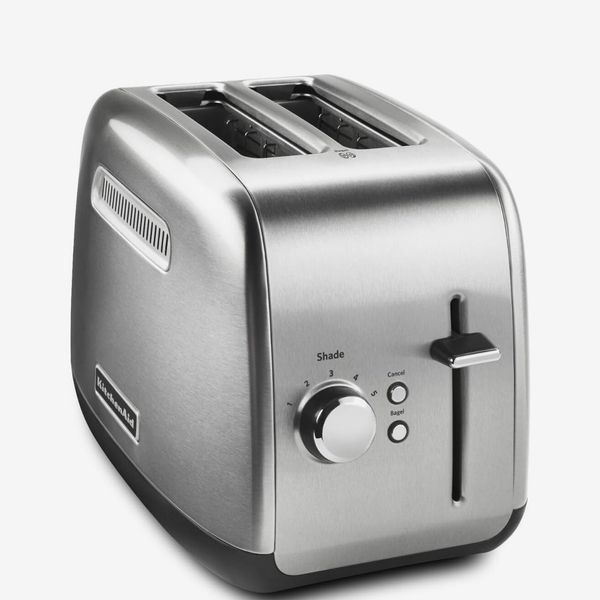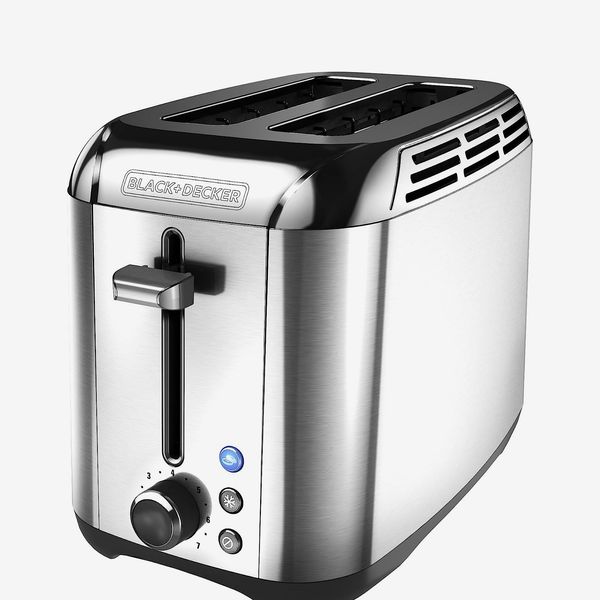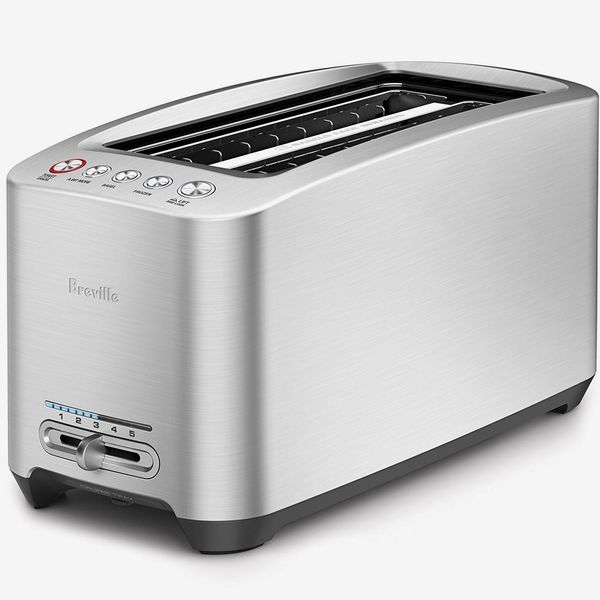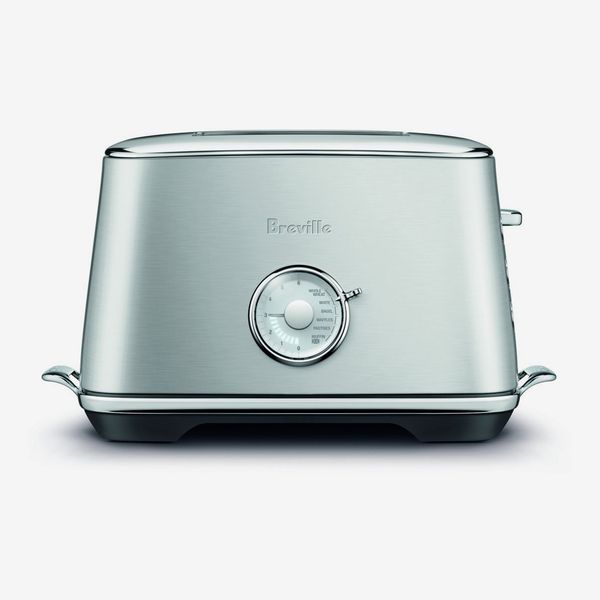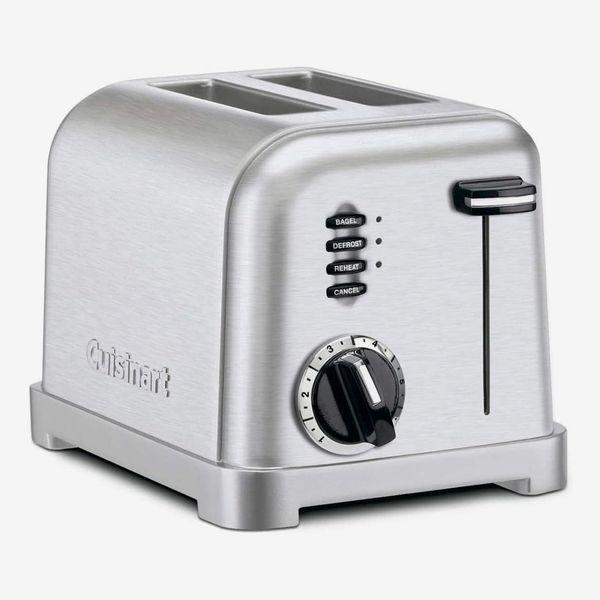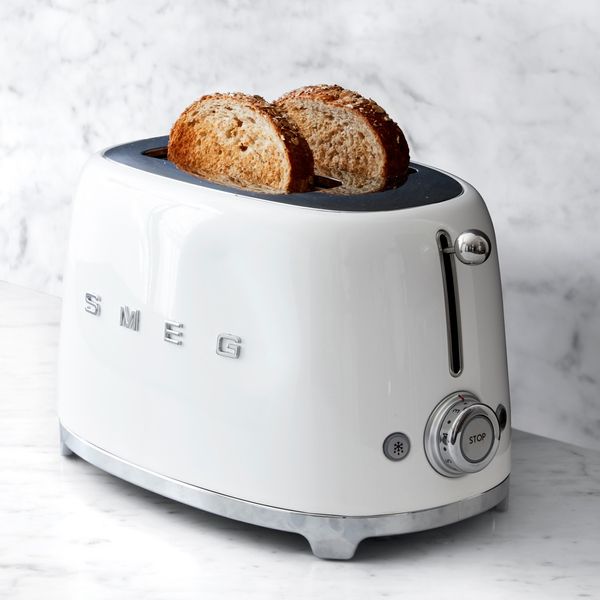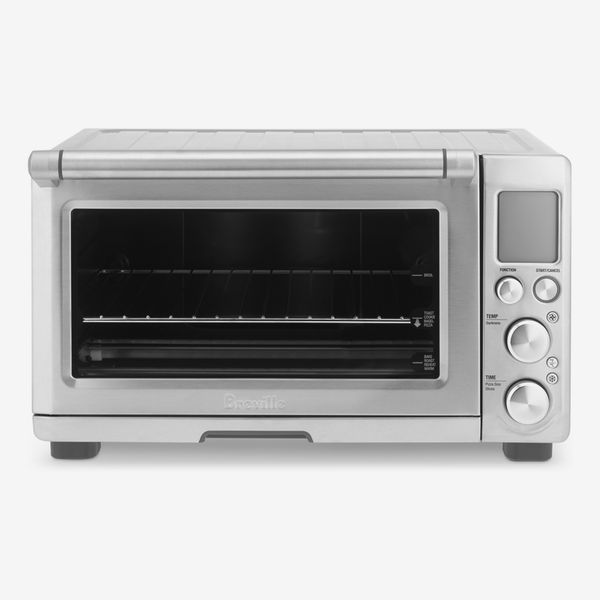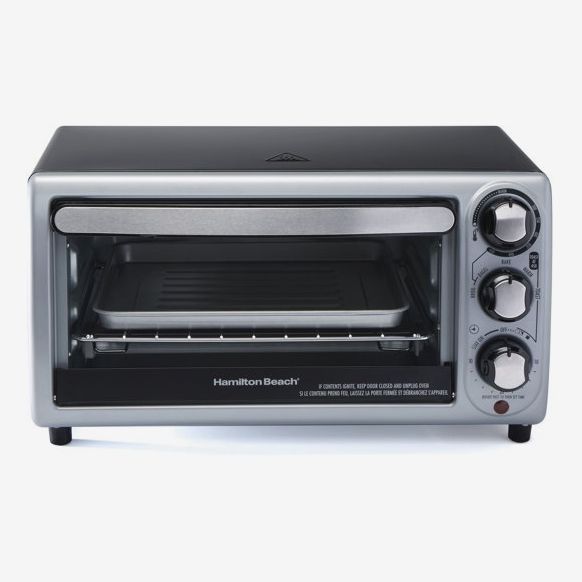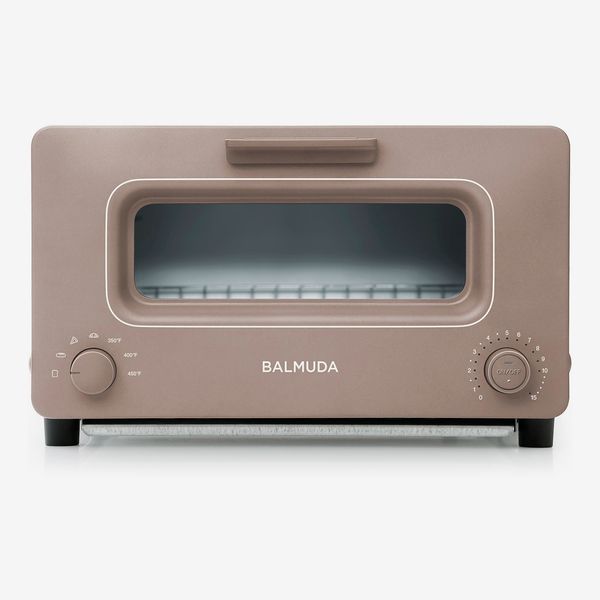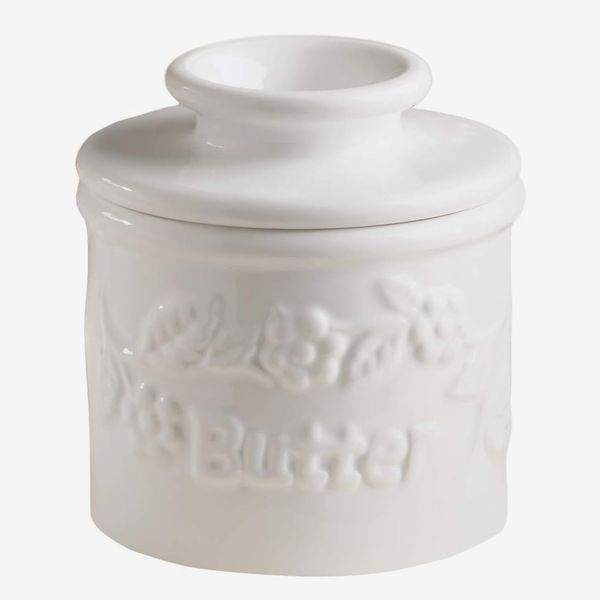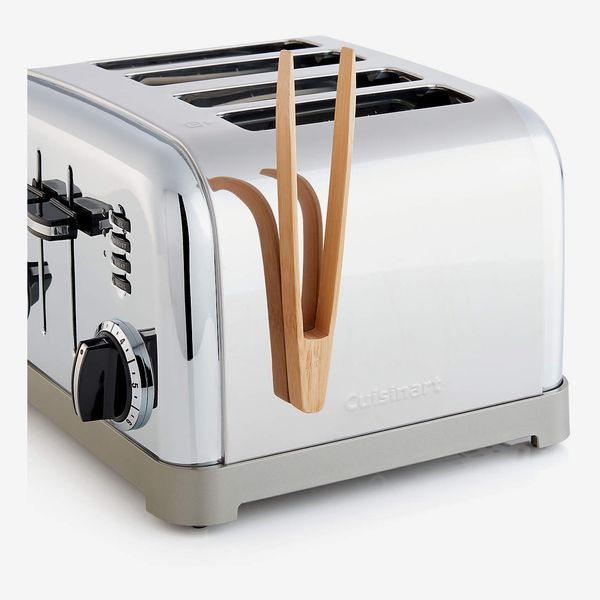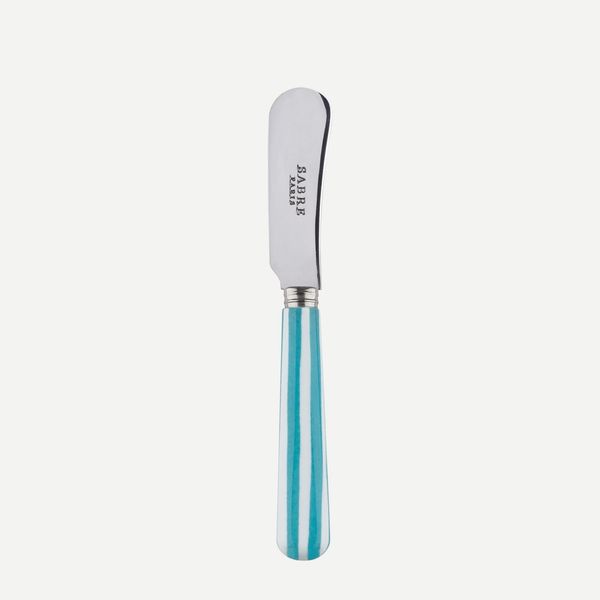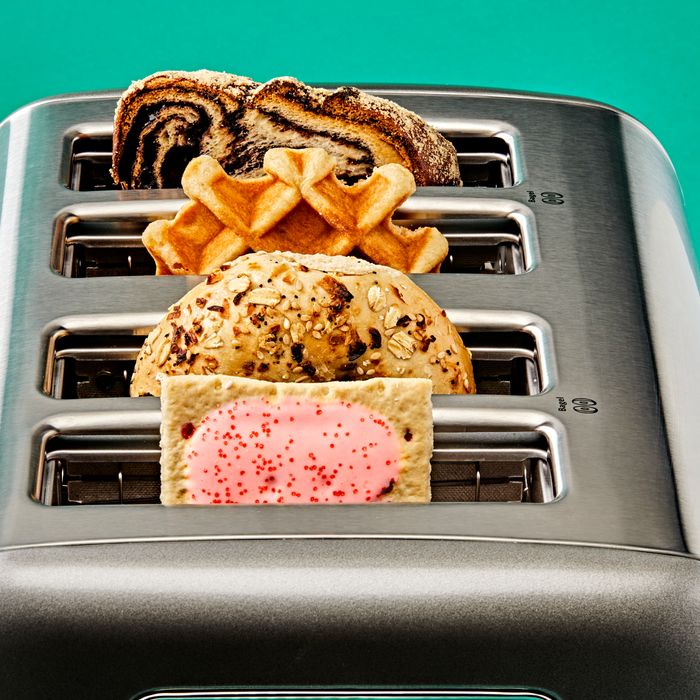
In this article
Making toast is a simple pursuit — but a task with so few steps also means that one wrong move, and the whole thing is in the garbage. The bread and toppings vary from day to day, of course, but there’s one decision that, more or less, you’re stuck with: the actual appliance you use.
And trust me: The toaster you use does make a difference. (I’ve been stuck with plenty of dinky toasters in apartments past.) The market is full of options that, beyond aesthetics and the number of slots, are difficult to distinguish between. Some offer a small range of browning, some a very wide one. (Though that doesn’t necessarily tell you what’s better.) Certain ones are built compactly, while others can accommodate four pieces of bread at a time. Several have additional features that may or may not be useful to you (like buttons that let you toast just a little longer, or ones that are meant specifically to defrost frozen slices). And then there’s the issue of: If you’re going to buy a toaster, should you just buy a toaster oven? (I’ve included a few standouts on this list, just in case the answer is yes, though I get even more detailed in my specific guide to those here.)
To help you figure out which toaster is best for you, 16 toast snobs offered their own favorites, which I’ve detailed below. And to make the whole endeavor even more thorough, I’ve tested some out myself, as well as consulted fellow Strategist writer Ambar Pardilla who worked on a previous version of this story and is perhaps the only person on staff who has tried out more models than me. And while toaster ovens fall into a slightly different category, I’ve included a few of my favorites from that guide below. If you happen to be shopping for other countertop appliances, check out my roundups of the best electric kettles, coffee makers, and blenders, too.
Update on August 16, 2024: Updated prices and checked stock for all products.
What we’re looking for
Number of slots
Most toasters on this list come with options for either two or four slots. In every case, I’ve featured the lower (and therefore cheaper) number but noted when you can buy a larger-capacity version. (The exception is one particularly slim pick that has only one slot.) For toaster ovens, I’ve noted how many standard-size pieces of sandwich bread each one fits.
Style of slots
What varies more from toaster to toaster is the width and length of the slots (which is why your go-to slice might fit into one toaster but stick out of another). In the cases where the slots are standard size, I say so. Otherwise, two industry-standard terms come up. Though they’re not officially regulated, “long slot” refers to slots that are generally at least 14 inches across and good for oblong artisan loaves, and “extra-wide slots” refers to slots that are generally 1.5 inches across and accommodating to thicker bread cuts and bagels.
Settings
Most toasters indicate brownness level by number. While these vary from model to model (what is a “3” to one toaster might look like a “5” to another), it’s still a somewhat useful indicator of how many options you have. For this, I’ve noted how many levels of doneness a toaster offers, as well as whether there are any specific adjacent functions.
Size
The most basic requirement of any countertop appliance is that it fits. I know some people put them away when not in use, too — but either way, dimensions matter. Here, I’ve listed the width, length, and height of each.
Best toaster overall
Number of slots: Two (or a four-slice version) | Style of slots: Extra-wide | Settings: Five (plus bagel and cancel) | Size: 11.25”x 10.6” x 6.3”
Since I’ve added this toaster to my kitchen, I’ve been quite impressed. It’s not the sleekest-looking one I’ve tried out (I used to own a Smeg, and have tested out the Balmuda steam oven, too, both of which happen to be particularly attractive and which I highlight below). But it is the best (and, I should note, it’s not at all ugly). The extra-wide slots work just as well for presliced bread as they do for thicker pieces I cut myself, and they fit bagels, too, for which there’s a dedicated setting. Most imperative to me: It browns bread incredibly evenly — both across the slices and on both sides (a function that, for some reason, many toasters seem to fail at). It’s also very fast, never taking more than a couple of minutes to pop. There are five browning levels, and I find a two or three delivers the results I want.
Pardilla has owned the KitchenAid for over a year and loves it, too. She makes toast in it multiple times a week, and has put it through the wringer at big family brunches where she’s made many rounds in a row. “The high-lift lever means I’m able to delicately take toast from the top without having to play the saddest game of hot potato,” she says. “Plus, it lets out an assertive beep when toast is ready — so I never have to chew through cold toast because I couldn’t hear a ding.”
Best less expensive toaster overall
Number of slots: Two | Style of slots: Extra-wide | Settings: Seven (plus frozen, bagel, and cancel) | Size: 10.25” x 8” x 7”
The Black + Decker Rapid Toast is quite cheap, has the slimmest profile of any on this list, and comes with only basic settings — making it a good option for those who don’t want to spend too much, need something space-saving, and don’t require a bunch of bells and whistles. But its main selling point is that it’s fast (no small deal for busy weekday mornings and quick-fix snacks).
Pardilla says on the first setting, her slices went in and came out before she could blink (but were still a bit pale for her taste). The second setting gave her browner edges. And the third produced a golden center. She notes that while the slots may look small at first glance, they are actually extra wide with “self-centering” guides to ensure an even toasting on both sides. Alexandra Shytsman of The New Baguette has the older, similarly oblong-shaped version with the same “extra lift” lever, which helps her grab English muffins without using tongs.
The only caveat is that the crumb catcher on the bottom has to be pried off — pulled sideways, then lifted up. “This takes a little elbow grease,” Pardilla says, “but not so much so as to be a problem. You get the hang of it after a couple of tries.”
Best long-slot toaster
Number of slots: Two | Style of slots: Extra-long to accommodate up to four slices | Settings: Five (plus bagel and frozen), “A Bit More” button, progress indicator | Size: 17.7” x 14.9” x 7.5”
The standout feature of this toaster is its extra-long slots meant to hold up to four slices — or to accommodate extra-long slices that might come from an artisanal sourdough loaf (as opposed to a pre-sliced grocery store bread). As someone who buys the former type frequently, this appeals to me big time. (In smaller toasters, I often have to toast one side, then flip it and toast again, all while hoping it doesn’t get too dark in the center.)
It’s for this reason that recipe developer and cookbook author Ali Slagle calls it a “toaster for toast people” — and indeed, it garnered the most praise among our experts, who also include culinary producer and cookbook consultant Laura Arnold, and recipe developer and cookbook author Odette Williams.
And there are quite a few additional and helpful features of this model, too. It has the delightfully named “A Bit More” button that you can press if you just want a little extra browning without going in for a full second round. There’s a “Lift & Look” lever for times when you’re nervous you went too high or are trying to fine-tune the browning,” says Strategist senior editor Jen Trolio (who has owned a similar version of this model with the same functions for over a decade). And there’s a progress bar so you can keep an eye on where in the toasting process you are.
Best toaster with extra-wide slots
Number of slots: Two | Style of slots: Extra-wide | Settings: Six (plus white, wheat, bagel, waffles, pastries, English muffin, and cancel) with progress indicator | Size: 17.7” x 14.9” x 7.5”
If you’re after width more than length, I believe this Breville model is your best bet. It comes recommended by recipe developer and cookbook author Anna Stockwell, who says the slots allow plenty of room for bagels and thick slices of sourdough. (The toaster even boasts settings for other thick specimens, like English muffins and waffles.) Still, Stockwell’s favorite function is “frozen,” as she keeps her gluten-free bread fresh in the freezer, and the toaster accounts for defrosting without sacrificing toastiness. And it gets brownie points for aesthetics, which Stockwell describes as “retro-chic.”
Best less expensive toaster with extra-wide slots
Number of slots: Two (or a four-slice version) | Style of slots: Extra-wide | Settings: Six (plus bagel, defrost, reheat, and cancel) | Size: 17.7” x 14.9” x 7.5”
The Cuisinart is a mere quarter of the price of the Breville. Recipe developer Rebecca Firkser says that though “it’s nothing fancy, it does exactly what you need it to do, and does it well.” The slots are about 1.5 inches across, the same thickness she usually slices bread. Still, the appliance doesn’t take up her whole counter. James Beard Award–nominated journalist and Strategist contributor Hannah Selinger (who has the four-slice version) uses hers every single day to make bagels and waffles for her sons.
The range of darkness on this toaster is something I took note of, too: Firkser prefers her bread “charred (but not burnt)” and Selinger says her children like things on the blonder end of the spectrum — and the Cuisinart achieves both perfectly.
Best high-design toaster
Number of slots: Two (or a four-slice version) | Style of slots: Standard | Settings: Six (plus bagel, cancel, defrost, and reheat) | Size: 12.25” x 7.75” x 7.75”
I’ll be honest: I’ve owned this toaster for a couple of years, and though I like it totally fine, I don’t necessarily think it’s worth the very steep cost. (That being said, I have yet to test out the similarly priced Breville options myself, which I’ll be doing soon.) Still, the Smeg is popular: It’s a staple on wedding registries and new-homeowner wish lists, and you can spot it on the kitchen countertops of celebrities like Saturday Night Live’s Chloe Fineman and Food Network star Molly Yeh. For that reason, I’m including it here — both with praise from other experts and my own pros and cons, so you can assess for yourself.
I’ll start with the good: As with all Smeg products, this appliance looks particularly nice and comes in an impressive range of colors (that’s the main reason I bought it in the first place, and in case you’re curious, I went with the white to give my very brown kitchen some much-needed brightness). It also performed consistently over the more than two years I used it regularly. (Similarly, writer and content creator Carrie Carrollo has had hers for over three years now with no issues.) I like the crumb tray, which removes easily with a slight push inwards so that it pops out and cleans up beautifully. I also find the “frozen” button works well: It manages to defrost and crisp without taking ages to do so.
My main qualm is that there’s a slight divot around the top of the toaster that catches all manner of crumbs and seeds. After a few sessions, it ends up looking dirty, and I have to use a toothpick to clean it out. (Pardilla had the same issue in her testing of the four-slice version.) I also find it toasts one side a bit darker than the other, no matter the type of bread I use.
Best toaster oven
Number of slots: None, but fits up to six slices | Style of slots: No slots | Settings: Seven (plus bagel, bake, roast, broil, pizza, cookies, reheat, warm) | Size: 16” x 13.5” x 8.75”
Breville currently offers eight different versions of toaster ovens — but this was the one that came up most among experts I talked to. While any is likely to be a good bet (and a couple of others were specifically recommended, too) the original Smart Oven is a reliable classic. In my own testing, I found it preheats in a matter of minutes and thanks to the removable racks and stainless steel interior, is easy to wipe down clean. (Celia Lee, pastry chef at New York City’s NARO, expressed the same sentiment.) The functions are simple to control: It has a dial to choose temperature, another one for time, and a third to cycle through the different settings (bake, broil, and the like). Perhaps most impressively, it bakes, broils, and toasts evenly, without hot spots. Recipe developer and newsletter author Caroline Chambers even used hers to create and test dishes in place of a full-size oven for two years. “It cooks things fast and efficiently,” she says. For her part, recipe developer and cookbook author Jocelyn Delk Adams notes the even heat distribution, too, which she says works just as well for making uniformly colored toast (like she makes every morning) as it does for roasting a few salmon filets for dinner. She also likes it for reheating food, especially when she wants something to maintain its original crispiness, like fritters or pizza.
It can fit up to six pieces of square sandwich bread (and four of larger cuts). You select the darkness on a scale from one to seven and also tell the machine how many slices are inside to help it regulate where it’s emitting heat (this is controlled by the time dial). The oven shows a minute and second countdown so you know exactly when your toast will be ready (even more specific than the progress bars on some of the models above).
Best less expensive toaster oven
Number of slots: None, but fits up to four slices | Style of slots: No slots | Settings: Three (plus bake, broil, bagel, keep warm) | Size: 16.4” x 12.2” x 9.6”
The Hamilton Beach is a very simple model. It only has three toast settings — light, medium, and dark — but recipe developer and cookbook author Jessie Sheehan considers this a plus. “Otherwise, there are too many choices and I get overwhelmed,” she says. “Sometimes less is more.” It preheats in minutes and has solid heat distribution, too. Beyond toast, there are only a few other functions: bagel, broil, keep warm, and bake. She uses that last option to reheat leftovers, bake treats, and roast small batches of ingredients like nuts and coconut flakes. “There’s absolutely nothing sexy about it, and yet it is a workhorse that has never failed me,” she says.
Best steam toaster oven
Number of slots: None, but fits up to two slices | Style of slots: No slots | Settings: 15 (plus 350-, 400-, and 450-degree bake, sandwich bread, artisan bread, pizza, pastry) | Size: 14.1” x 12.6” x 8.2”
A steam toaster oven differs from a regular toaster oven in that you add water before you toast. This generates steam as it heats, keeping bread and pastries super moist, pillowy, and soft on the inside, even as they crisp on the outside. In the case of this Balmuda, the water is measured with a tiny cup (which is included with the toaster oven) via a small chamber at the top. It truly works — especially, I’ve found, in reviving leftovers like pizza, reheating foods like empanadas, and toasting bread like pita where in other scenarios, the center gets too crunchy. The machine has several settings for different types of breads and pastries, as well as a few exact degrees (350, 400, and 450) for baking other types of food, and then a dial for choosing the amount of time. Food writer and editor Melissa Kravitz Hoeffner says the steam effect re-creates the texture of just-baked bread, and recipe developer and cookbook author Samah Dada calls it a “refresher” for the way the steam breathes new life into days-old baked goods. Pardilla loves it for foods other than toast, too. “You get the flakiest pastries — that fluffiness of a croissant — and grilled cheese with the pulliest cheeses, like those Hubba Bubba commercials.” she says.
To my mind, there are two notable downsides worth mentioning (though they may not be deal breakers for you, depending on how you plan to use it): Toast takes several minutes longer than a traditional toaster oven to crisp up, and the oven doesn’t include a broil setting — one function I particularly like.
More excellent toast-making tools we’ve written about
Our experts
• Jocelyn Delk Adams, recipe developer and cookbook author
• Laura Arnold, culinary producer and cookbook consultant
• Carrie Carrollo, a writer and content creator
• Caroline Chambers, recipe developer and newsletter author
• Samah Dada, recipe developer and cookbook author
• Rebecca Firkser, recipe developer
• Melissa Kravitz Hoeffner, food writer and editor
• Celia Lee, pastry chef at NARO
• Ambar Pardilla, Strategist writer
• Hannah Selinger, journalist and Strategist contributor
• Jessie Sheehan, recipe developer and cookbook author
• Alexandra Shytsman, writer of the New Baguette
• Ali Slagle, recipe developer and cookbook author
• Anna Stockwell, recipe developer and cookbook author
• Hadley Sui, cookbook author
• Jen Trolio, Strategist senior editor
• Odette Williams, recipe developer and cookbook author
The Strategist is designed to surface the most useful, expert recommendations for things to buy across the vast e-commerce landscape. Some of our latest conquests include the best women’s jeans, rolling luggage, pillows for side sleepers, ultra-flattering pants, and bath towels. We update links when possible, but note that deals can expire and all prices are subject to change.
Every editorial product is independently selected. If you buy something through our links, New York may earn an affiliate commission.

